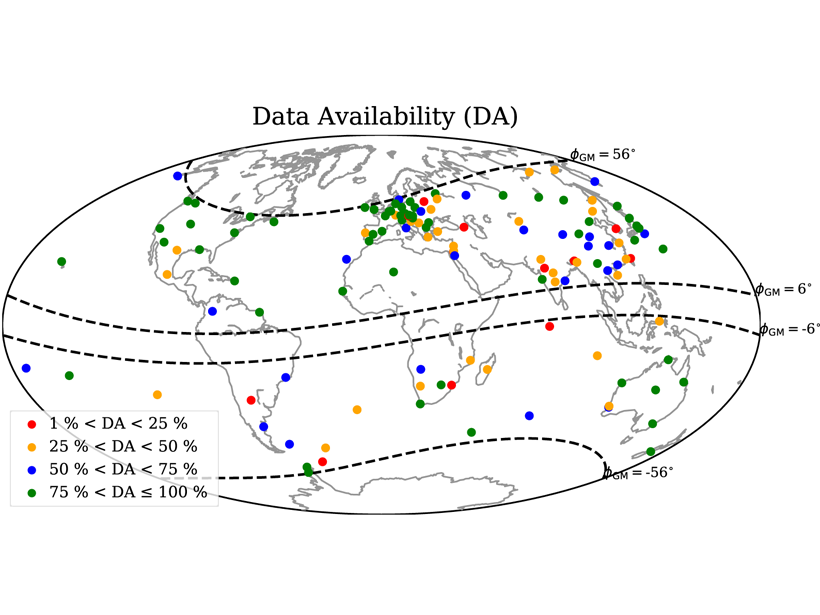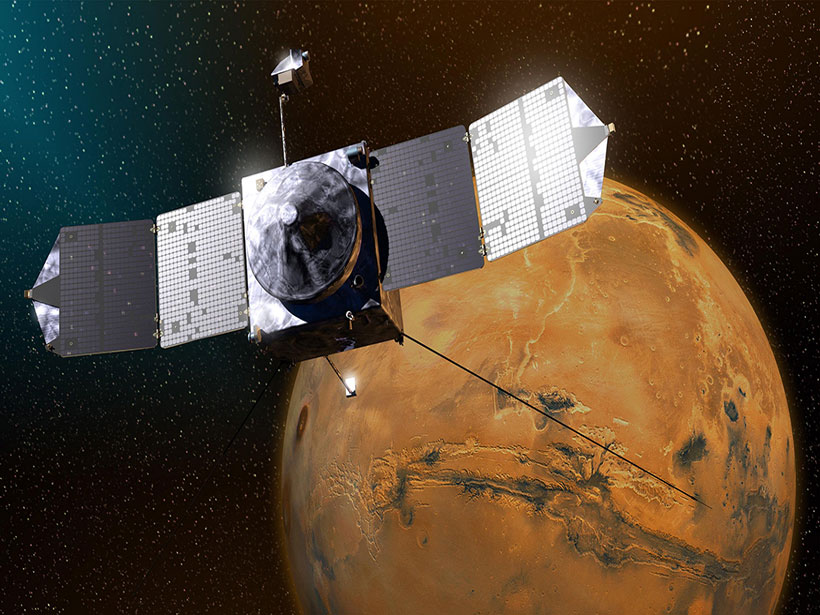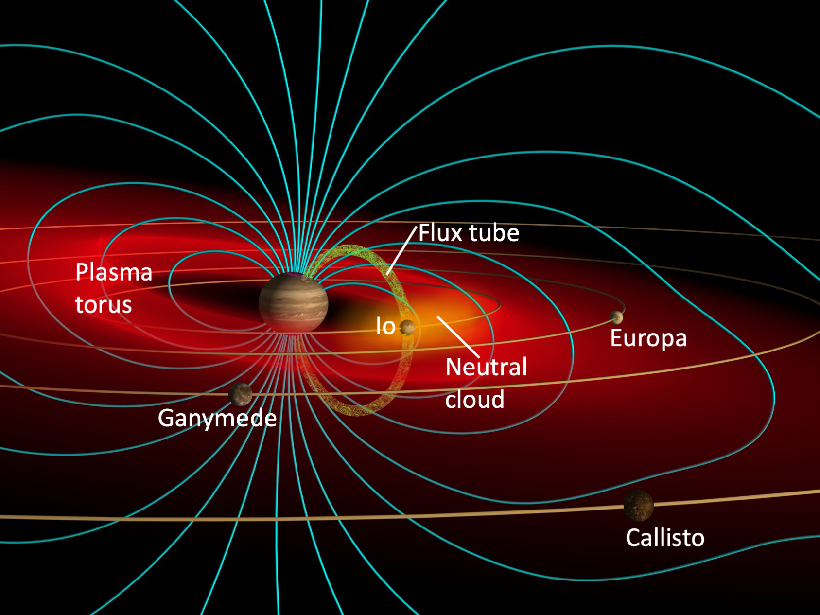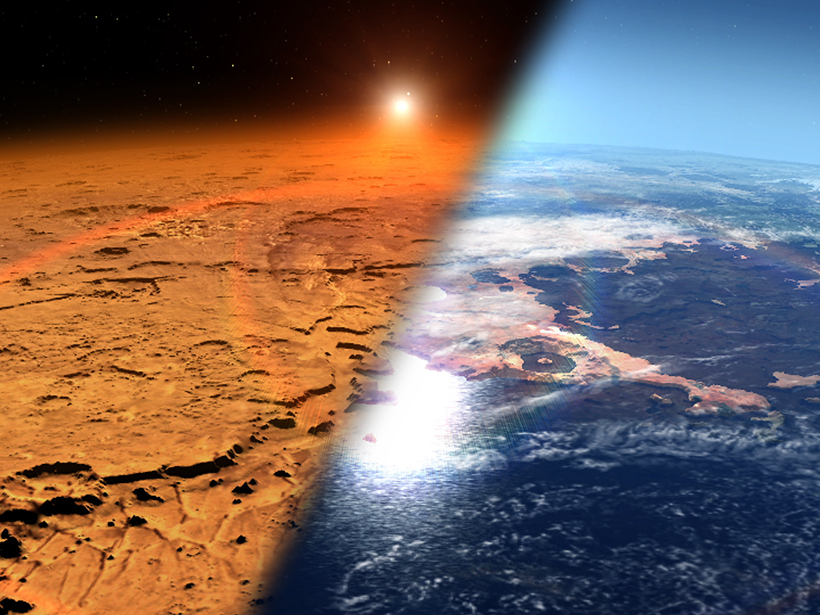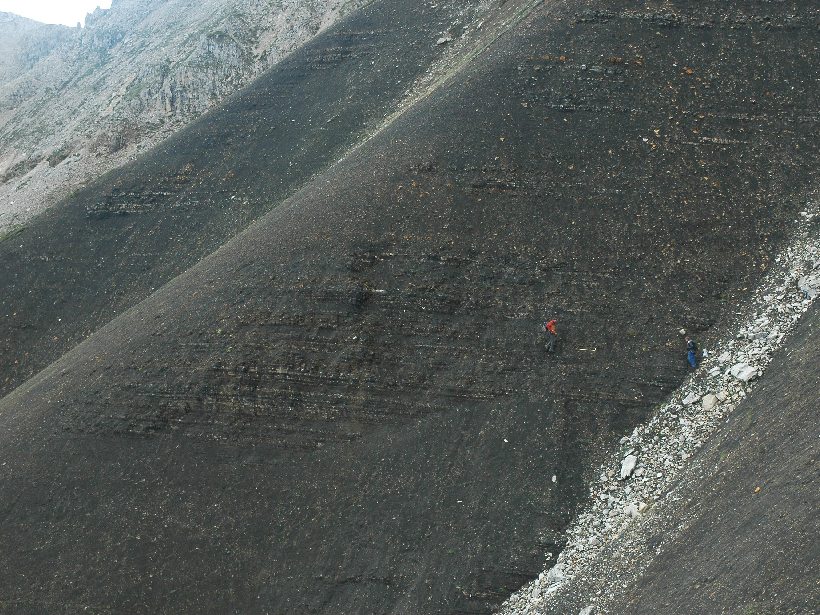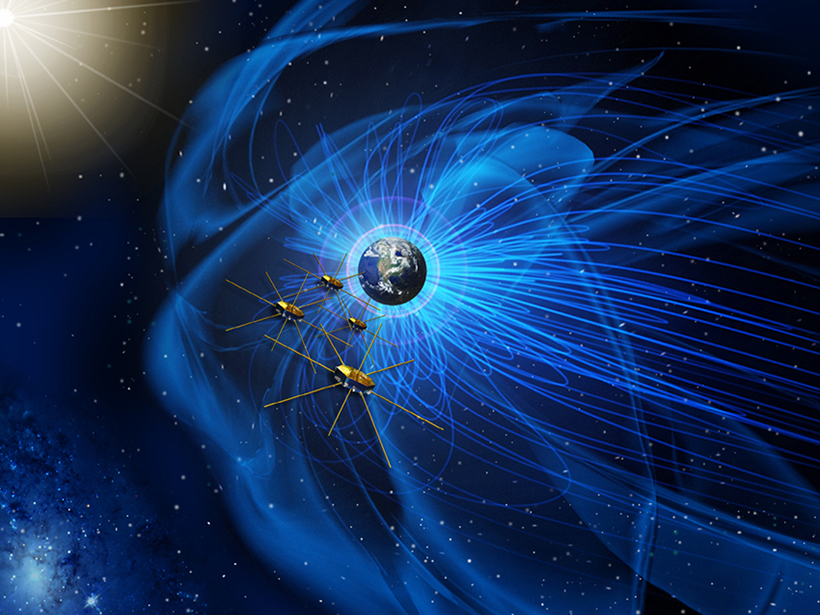Using electromagnetic waves originating in the ionosphere and magnetosphere, conductivity profiles reaching the deep upper mantle show surprising variability in water content.
magnetic fields & magnetism
The Future of Big Data May Lie in Tiny Magnets
New research in the field of neuromorphic computing uses tiny magnets and their magnetic fields to optimize computing algorithms.
A Longer-Lived Magnetic Field for Mars
New research indicates Mars’s dynamo may have been active for millions of years longer than previously thought.
Two Moons and a Magnetosphere
Decades of research have illuminated how Io and Europa shape—and are shaped by—Jupiter’s giant magnetosphere.
Chinese Swamp Core Reveals 47,000 Years of Monsoon History
Magnetic analysis of mineral composition supports the importance of tropical climate processes in shaping long-term monsoon patterns.
How Mars’s Magnetic Field Let Its Atmosphere Slip Away
A planet’s magnetic field usually protects its atmosphere from being blown away by its star. But new research suggests Mars’s weak magnetic field may have helped its atmosphere escape.
Review of Go-To Iron Analysis Method Reveals Its Pros and Cons
Researchers validated some steps in the standard sequential chemical technique used to extract different forms of iron from rock samples but found inconsistencies in other steps.
Ryugu: A Not So Magnetic Asteroid
When the lander MASCOT, carried by Hayabusa2, touched down on asteroid Ryugu, it did not detect a magnetic field, even though meteorites that are spectroscopically similar to Ryugu have trace of one.
Deciphering Electron Signatures in Earth’s Magnetic Tail
A new analysis of spacecraft data collected near the tip of Earth’s magnetotail sheds light on how geomagnetic activity affects the motion of electrons in this region.
Japan Puts Its Mark on Geologic Time with the Chibanian Age
The newly named period in the Pleistocene identifies a key moment in geological history: the last time Earth’s magnetic poles switched places.

